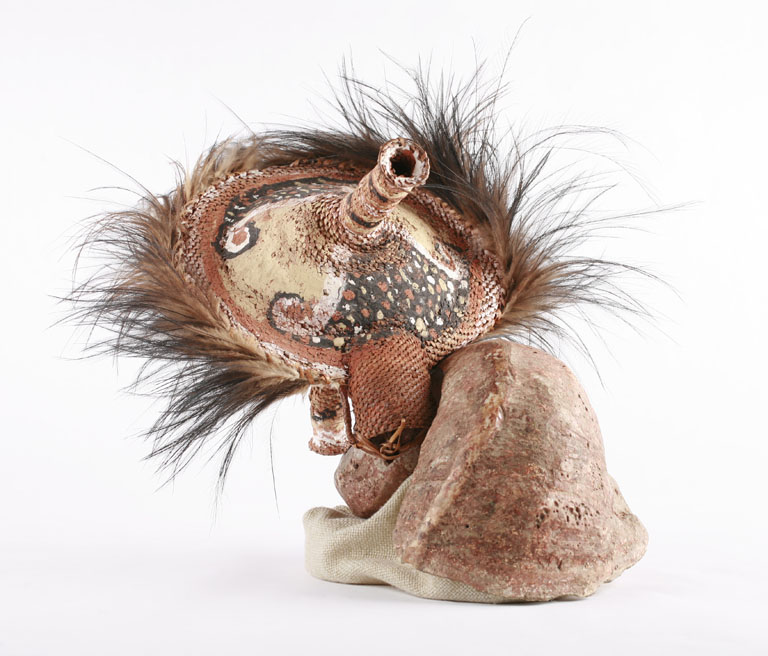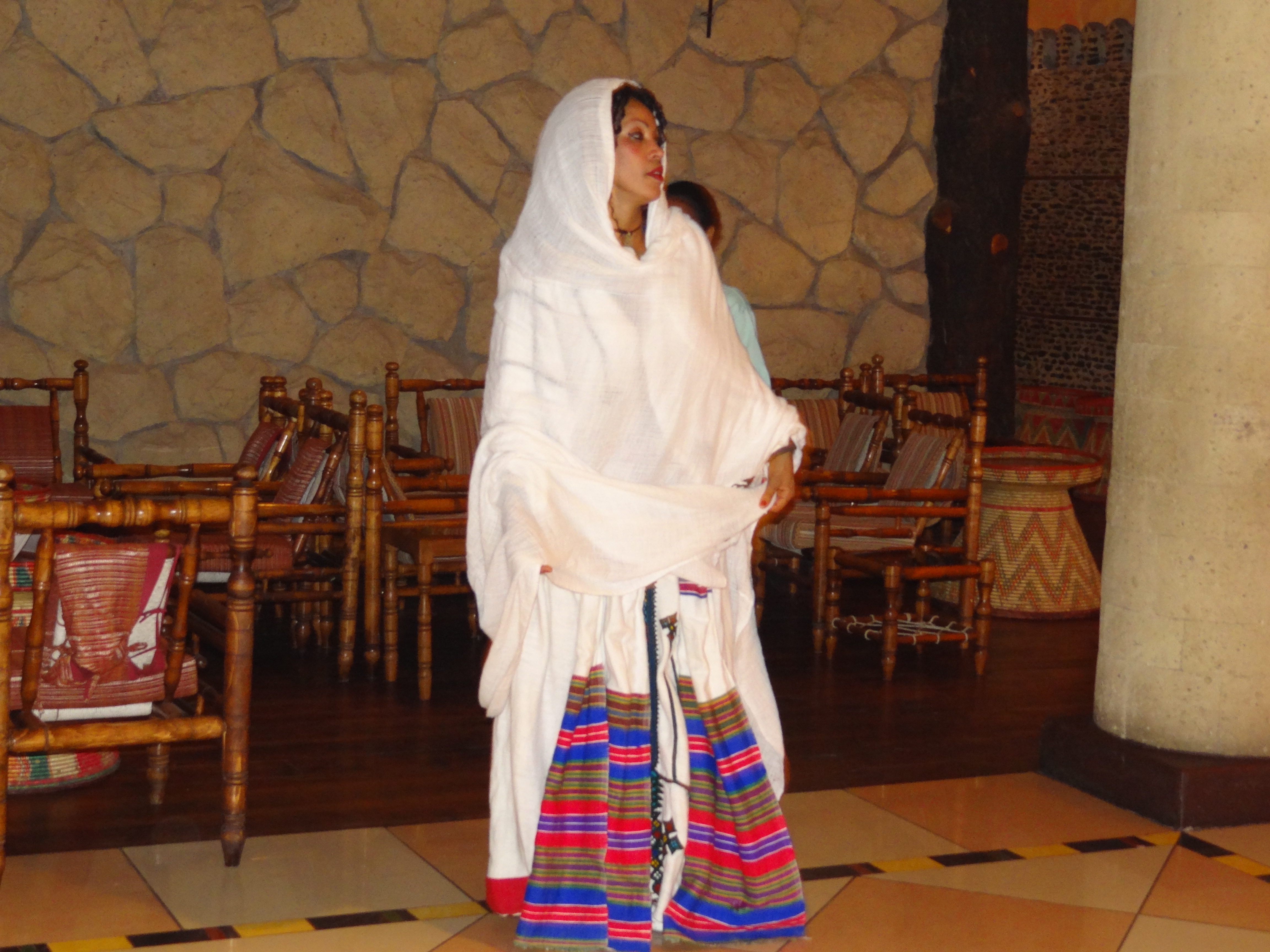|
Woineshet Zebene
Woineshet Zebene Negash, also known as Woineshet Zebene, is a rape victim whose case was responsible for a change in Ethiopian law. She was the first Ethiopian ever legally to challenge a bridal abduction. Traditionally in rural Ethiopia, if a man wants to marry a woman but does not have the money to pay a bride price for her, he kidnaps and rapes her, after which she is expected to marry him because she is considered "ruined" and will probably be unable to find anyone else willing to marry her. When Woineshet was 13 she was kidnapped and raped. The leader of the men who participated in this (Aberew Jemma Negussi) was briefly arrested, but then released on bail, at which point he kidnapped Woineshet again and held her for over a month until she managed to escape, but only after he had forced her to sign a marriage certificate. At this time, Ethiopian law stated that a man could not be charged with rape if he married the victim. On July 22, 2003, Aberew Jemma Negussie was sentenced ... [...More Info...] [...Related Items...] OR: [Wikipedia] [Google] [Baidu] |
Rape
Rape is a type of sexual assault usually involving sexual intercourse or other forms of sexual penetration carried out against a person without their consent. The act may be carried out by physical force, coercion, abuse of authority, or against a person who is incapable of giving valid consent, such as one who is unconscious, incapacitated, has an intellectual disability, or is below the legal age of consent. The term ''rape'' is sometimes used interchangeably with the term ''sexual assault.'' The rate of reporting, prosecuting and convicting for rape varies between jurisdictions. Internationally, the incidence of rapes recorded by the police during 2008 ranged, per 100,000 people, from 0.2 in Azerbaijan to 92.9 in Botswana with 6.3 in Lithuania as the median. [...More Info...] [...Related Items...] OR: [Wikipedia] [Google] [Baidu] |
Bride Price
Bride price, bride-dowry (Mahr in Islam), bride-wealth, or bride token, is money, property, or other form of wealth paid by a groom or his family to the woman or the family of the woman he will be married to or is just about to marry. Bride dowry is equivalent to dowry paid to the groom in some cultures, or used by the bride to help establish the new household, and dower, which is property settled on the bride herself by the groom at the time of marriage. Some cultures may practice both simultaneously. Many cultures practiced bride dowry prior to existing records. The tradition of giving bride dowry is practised in many Asian countries, the Middle East, parts of Africa and in some Pacific Island societies, notably those in Melanesia. The amount changing hands may range from a token to continue the traditional ritual, to many thousands of US dollars in some marriages in Thailand, and as much as a $100,000 in exceptionally large bride dowry in parts of Papua New Guinea where br ... [...More Info...] [...Related Items...] OR: [Wikipedia] [Google] [Baidu] |
Arsi Zone
Arsi ( om, Godina Arsii) is a zone in Oromia Region of Ethiopia, named after a clan of the Oromo, who inhabit in the area. Arsi is bordered on the south by Bale Zone, on the southwest by the West Arsi Zone, on the northwest by East Shewa Zone, on the north by the Afar Region and on the east by West Hararghe Zone. It covers an area of 19,825.22 km2, divided into 25 districts (''weredas''). The population was officially estimated at 3,894,248 in mid 2022. The highest point in Arsi Zone is Mount Chilalo; other notable mountains in this zone include Mount Kaka and Mount Gugu. Arsi Mountains National Park was created in 2011 to protect a section of the mountains. The administrative centre of this zone is in Asela, with an estimated 139,537 inhabitants in mid 2022; other towns in this zone (with estimated populations in mid 2022) include Bokoji (36,805) in Limuna Bilbilo District, Robe (31,445) in Robe District, Etaya (31,094) in Hitosa District, Dera (30,676) in Dodota District, Ab ... [...More Info...] [...Related Items...] OR: [Wikipedia] [Google] [Baidu] |
Equality Now
Equality Now is a non-governmental organization founded in 1992 to advocate for the protection and promotion of the human rights of women and girls. Through a combination of regional partnerships, community mobilization and legal advocacy the organization works to encourage governments to adopt, improve and enforce laws that protect and promote women and girls' rights around the world. Equality Now's four main issue areas are ending sexual violence, ending harmful practices such as child marriage and female genital mutilation, ending sexual exploitation including the trafficking of women and girls, and ending discrimination in law, including the passage of the Equal Rights Amendment (ERA) in the United States. As of 2019, the organization has offices in New York, United States, Nairobi, Kenya, London, United Kingdom, and Beirut, Lebanon. Gloria Steinem serves as the chair emeritus of the board. Background and history Equality Now was founded in 1992 in New York by attorn ... [...More Info...] [...Related Items...] OR: [Wikipedia] [Google] [Baidu] |
The Gambia
The Gambia,, ff, Gammbi, ar, غامبيا officially the Republic of The Gambia, is a country in West Africa. It is the smallest country within mainland AfricaHoare, Ben. (2002) ''The Kingfisher A-Z Encyclopedia'', Kingfisher Publications. p. 11. . and is surrounded by Senegal, except for its western coast on the Atlantic Ocean. The Gambia is situated on both sides of the lower reaches of the Gambia River, the nation's namesake, which flows through the centre of the Gambia and empties into the Atlantic Ocean, thus the long shape of the country. It has an area of with a population of 1,857,181 as of the April 2013 census. Banjul is the Gambian capital and the country's largest metropolitan area, while the largest cities are Serekunda and Brikama. The Portugal, Portuguese in 1455 entered the Gambian region, the first Europeans to do so, but never established important trade there. In 1765, the Gambia was made a part of the British Empire by establishment of the Gambia Col ... [...More Info...] [...Related Items...] OR: [Wikipedia] [Google] [Baidu] |
Ethiopian Victims Of Crime
Ethiopians are the native inhabitants of Ethiopia, as well as the global diaspora of Ethiopia. Ethiopians constitute several component ethnic groups, many of which are closely related to ethnic groups in neighboring Eritrea and other parts of the Horn of Africa. The first documented use of the name "Ethiopia" from Greek name "Αἰθίοψ" (Ethiopian) was in the 4th century during the reign of Aksumite king Ezana. There were three ethnolinguistic groups in the Kingdom of Aksum; Semitic, Cushitic, and Nilo-Saharan (ancestors of the modern-day Kunama and Nara). The Kingdom of Aksum remained a geopolitically influential entity until the pillage of its capital — also named Axum — in the 10th century by Queen Gudit. Nevertheless, the core Aksumite civilization was preserved and continued into the successive Zagwe dynasty. By this time, new ethnic groups emerged – the Tigrayans and Amharas. During the Solomonic period, the latter established major political and cultural in ... [...More Info...] [...Related Items...] OR: [Wikipedia] [Google] [Baidu] |
Women's Rights In Ethiopia
There have been several studies concerning women in Ethiopia. Historically, elite women in Ethiopia have been visible as administrators and warriors. This never translated into any benefit to improve the rights of women, but it had meant that women could inherit and own property and act as advisors on important communal matters. As late as the first part of the 20th century, Queen Menen, consort of Emperor Iyasu IV, had a decisive role in running the Ethiopian Empire. Workit and Mestayit regents to their minor sons have been held responsible for their provinces. They owed their rights to landed property because of a special type of land tenure that expected tenants to serve as militia to overlords, irrespective of gender. In 1896, Empress Tayetu Betul, wife of Emperor Menelik II, actively advised the government and participated in defending the country from Italian invasion. Prominent and other landowning women fought against the second invasion in 1935–41. With the assistance ... [...More Info...] [...Related Items...] OR: [Wikipedia] [Google] [Baidu] |
Living People
Related categories * :Year of birth missing (living people) / :Year of birth unknown * :Date of birth missing (living people) / :Date of birth unknown * :Place of birth missing (living people) / :Place of birth unknown * :Year of death missing / :Year of death unknown * :Date of death missing / :Date of death unknown * :Place of death missing / :Place of death unknown * :Missing middle or first names See also * :Dead people * :Template:L, which generates this category or death years, and birth year and sort keys. : {{DEFAULTSORT:Living people 21st-century people People by status ... [...More Info...] [...Related Items...] OR: [Wikipedia] [Google] [Baidu] |
Year Of Birth Missing (living People)
A year or annus is the orbital period of a planetary body, for example, the Earth, moving in its orbit around the Sun. Due to the Earth's axial tilt, the course of a year sees the passing of the seasons, marked by change in weather, the hours of daylight, and, consequently, vegetation and soil fertility. In temperate and subpolar regions around the planet, four seasons are generally recognized: spring, summer, autumn and winter. In tropical and subtropical regions, several geographical sectors do not present defined seasons; but in the seasonal tropics, the annual wet and dry seasons are recognized and tracked. A calendar year is an approximation of the number of days of the Earth's orbital period, as counted in a given calendar. The Gregorian calendar, or modern calendar, presents its calendar year to be either a common year of 365 days or a leap year of 366 days, as do the Julian calendars. For the Gregorian calendar, the average length of the calendar year (the ... [...More Info...] [...Related Items...] OR: [Wikipedia] [Google] [Baidu] |


